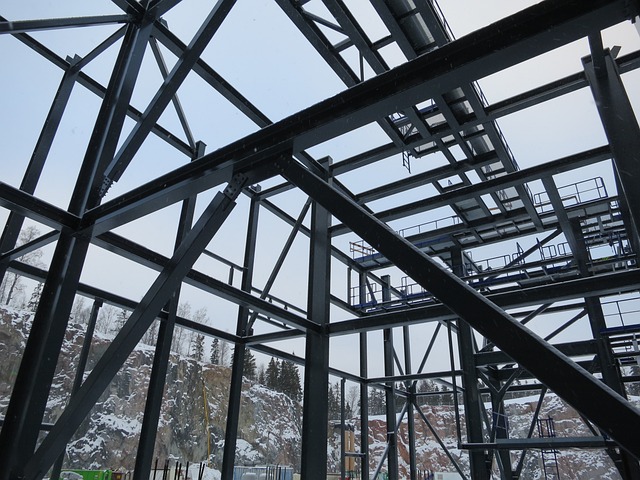he construction industry has witnessed significant advancements in building technologies in recent years. One such advancement is using Rigid Frame Metal Building Systems (RFMB). RFMBs are pre-engineered metal buildings fabricated in a factory and transported to the construction site for assembly. These steel building framing are widely used in commercial and industrial construction due to their durability, versatility, and cost-effectiveness. This article will explore how RFMBs are reshaping the construction industry.
Advantages of Rigid Frame Metal Building System:
RFMBs have several advantages over traditional construction methods, including:
- Cost-effectiveness: RFMBs are cost-effective compared to traditional construction methods. These buildings are fabricated in a factory using computer-aided design software (CAD). This ensures that the building’s design is precise and there is minimal material wastage. RFMBs require less labour and construction time, lowering construction costs.
- Durability: RFMBs are made of high-quality steel resistant to fire, pests, and harsh weather conditions. The steel used in RFMBs is also galvanized, making it corrosion-resistant. This durability ensures that RFMBs have a longer lifespan than traditional buildings and require minimal maintenance.
- Versatility: RFMBs are versatile and can be used for various applications. They can be used for commercial, industrial, and even residential purposes. Additionally, RFMBs can be designed to fit specific requirements, such as height, width, and length, making them an ideal choice for specialized applications.
- Energy-efficient: RFMBs are energy-efficient and can reduce energy consumption significantly. The metal panels used in RFMBs have a high thermal efficiency, which helps regulate the building’s temperature. This, coupled with RFMBs requiring less energy to heat or cool than traditional buildings, leads to reduced energy consumption and lower utility bills.
- Sustainability: RFMBs are sustainable and eco-friendly. The steel used in RFMBs is recyclable, which means the buildings can be disassembled and reused. Additionally, the fabrication of RFMBs produces minimal waste, and any waste generated can be recycled.
How Rigid Frame Metal Building System Is Reshaping The Construction Industry:
RFMBs are reshaping the construction industry in various ways.
- Firstly, RFMBs have reduced the time required to construct buildings. The prefabrication process allows for the quick assembly of buildings, reducing construction time significantly. This is especially important for commercial and industrial applications where time is of the essence.
- Secondly, RFMBs have reduced construction costs significantly. The pre-engineering process ensures minimal material wastage, and the buildings require less construction labour. Additionally, RFMBs have a longer lifespan than traditional buildings, reducing maintenance and replacement costs.
- Thirdly, RFMBs are environmentally friendly and sustainable. Using recyclable materials reduces the carbon footprint of construction projects, making them a more sustainable option for the environment. The energy-efficient design of RFMBs also reduces energy consumption, making them an ideal choice for eco-conscious consumers and businesses.
- Fourthly, RFMBs are versatile and can be used for various applications. The ability to customize RFMBs to specific requirements means that they can be used for specialized applications, such as data centers, hospitals, and schools. This versatility has expanded the range of projects undertaken using RFMBs.
- Lastly, RFMBs have enhanced the safety and quality of construction projects. Computer-aided design software ensures the building’s design is precise and meets safety standards. Additionally, the quality control processes used during fabrication ensure that the building materials are high quality and meet industry standards.
Conclusion:
Rigid Frame Metal Building Systems have revolutionized the construction industry in various ways. These steel building framings have also enhanced the safety and quality of construction projects and reduced the carbon footprint of construction projects. Overall, RFMBs are reshaping the construction industry and are likely to become even more prevalent as the demand for sustainable, cost-effective, and efficient building solutions grows.







